
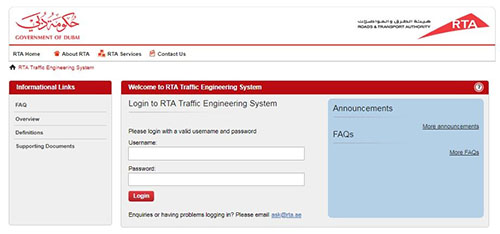 TrafQuest was contracted by Dubai Road and Transport Authority (RTA) to design, build, operate and maintain a platform to provide next generation of Traffic Engineering services for internal and external stakeholders at RTA. The main objectives of the system are:
TrafQuest was contracted by Dubai Road and Transport Authority (RTA) to design, build, operate and maintain a platform to provide next generation of Traffic Engineering services for internal and external stakeholders at RTA. The main objectives of the system are:
In order to meet these objectives successfully, TrafQuest was contracted based on the following solution:
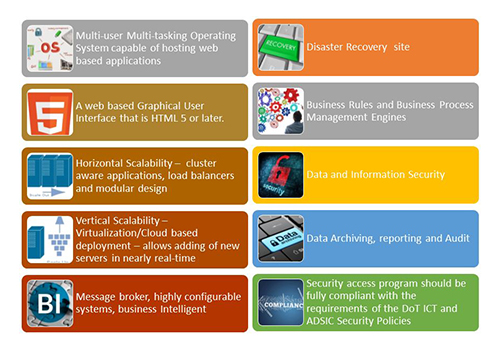 The desire to better integrate transport services within the Abu Dhabi Emirate is driving the integration of all services related to public and private transport payments under a unified Integrated Transportation Payment System (IPS). The Multi-Modal Intelligent Payment Solution shall be an integrated, open and flexible architecture, interoperable electronic fare payment and business intelligence that can be utilized by all modes of transportation at all times in real-time and off-line.
The desire to better integrate transport services within the Abu Dhabi Emirate is driving the integration of all services related to public and private transport payments under a unified Integrated Transportation Payment System (IPS). The Multi-Modal Intelligent Payment Solution shall be an integrated, open and flexible architecture, interoperable electronic fare payment and business intelligence that can be utilized by all modes of transportation at all times in real-time and off-line.
The Integrated Payment System will provide payment services for both offline payments taken in busses, trains or marine and online payment services taken from parking, tolling, etc. The system will manage a customer database and customer financial transactions from all modes of transportation. The system has multiple interfaces, a customer web interface that will allow internal and external customers to manage their accounts information, top-up their accounts and view usage. It will also have a system-to-system interface through a standardized software interface that will facilitate the integration between the IPS and other standalone system such as bus, metro, parking, marine and taxi.
In addition, the IPS will maintain a system configuration interface (business rule engine) to allow authorized users to change business rules and process flow using a graphical user interface to minimize software modifications for such changes.
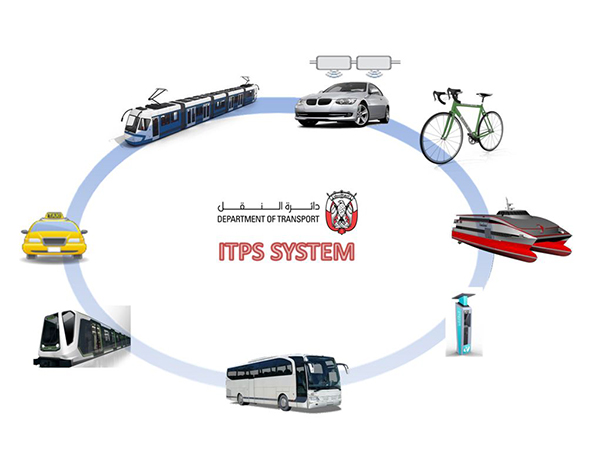
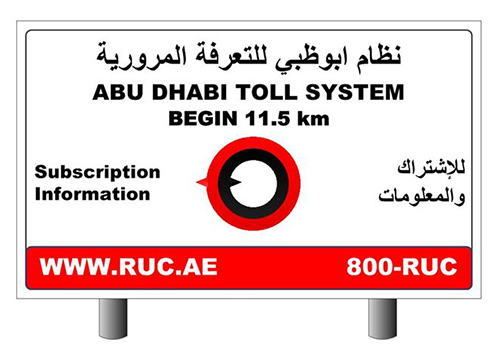 TrafQuest just finalized the design efforts and tender documents for a complete and advanced video-based tolling solution for the city of Abu Dhabi. The tolling system is based on virtual zones that will be operational at specific times of day when traffic congestion is at its peak. The owners of the RUC system will have the ability to dynamically change the tolling hours and rates to best mitigate traffic congestion. In other words, the primary goal for the Abu Dhabi RUC system is to provide a means of assessing toll fees for vehicles crossing predefined cordons or entering/leaving predefined sectors or zones on Abu Dhabi Island in order to reduce congestion during specific times of the day or in targeted locations.
TrafQuest just finalized the design efforts and tender documents for a complete and advanced video-based tolling solution for the city of Abu Dhabi. The tolling system is based on virtual zones that will be operational at specific times of day when traffic congestion is at its peak. The owners of the RUC system will have the ability to dynamically change the tolling hours and rates to best mitigate traffic congestion. In other words, the primary goal for the Abu Dhabi RUC system is to provide a means of assessing toll fees for vehicles crossing predefined cordons or entering/leaving predefined sectors or zones on Abu Dhabi Island in order to reduce congestion during specific times of the day or in targeted locations.
In addition, it is expected that the system will result in additional benefits to include:
The RUC System is divided into the following 5 functional areas:
TrafQuest, was involved in the design, implementation, operation and maintenance of the first integrated travel information and navigation services (i-TINS) system in the Middle East.
TrafQuest was an integral part of an international team focusing on delivering a landmark traveler information system, along with establishing guidelines and standards for accuracy and reliability of travel status and real-time routing options for both private users and DoT operations staff.
This project involves traffic engineering, traveler information applications, central system software, traffic modeling, performance management, GIS, telematics and in-vehicle systems, system implementation, and hands-on operations.
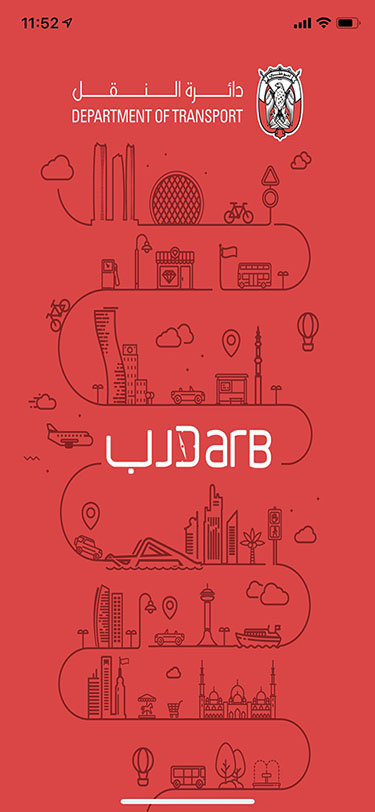
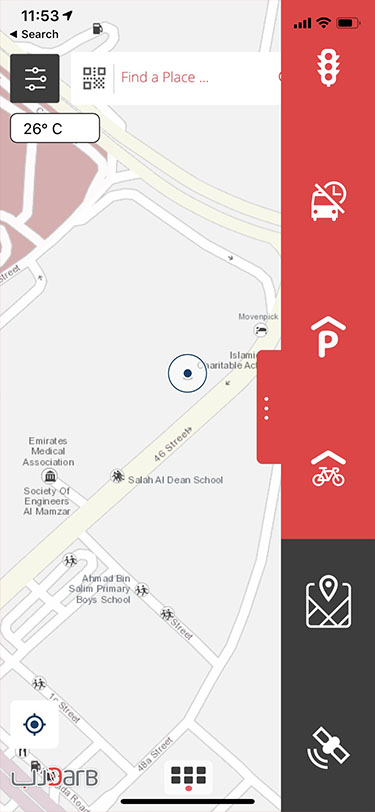
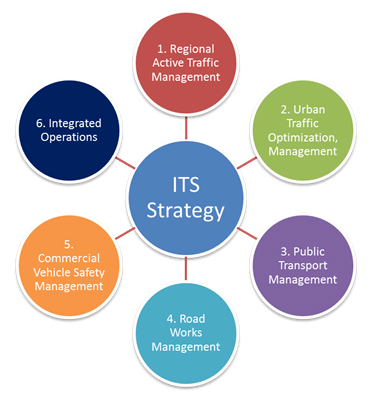 TrafQuest was awarded the contract by the Abu Dhabi Department of Transport to develop a comprehensive ITS Architecture and ITS strategy & Implementation Plan for the Emirate of Abu Dhabi. This work will pave the way for the development of an Integrated, Coordinated, Multi-Agency and Multi-Modal World Class Intelligent Transportation System in support of the fulfillment of Abu Dhabi 2030 plan. TrafQuest’s work on this project puts it in a unique position; allowing TrafQuest to a better understanding of the local Gulf environment and the needs that are specific to Gulf region.
TrafQuest was awarded the contract by the Abu Dhabi Department of Transport to develop a comprehensive ITS Architecture and ITS strategy & Implementation Plan for the Emirate of Abu Dhabi. This work will pave the way for the development of an Integrated, Coordinated, Multi-Agency and Multi-Modal World Class Intelligent Transportation System in support of the fulfillment of Abu Dhabi 2030 plan. TrafQuest’s work on this project puts it in a unique position; allowing TrafQuest to a better understanding of the local Gulf environment and the needs that are specific to Gulf region.
Iteris, as a sub to TrafQuest, conducted a series of stakeholder workshops and outreach efforts which formed the basis for the architecture development, formulation of project elements and development of a recommended institutional framework. These stakeholders represented the major transportation and law enforcement entities in the Emirate, including DoT, Abu Dhabi Municipality, Al Ain Municipality, Abu Dhabi and Al Ain Police departments, along with other key entities.
The initial programs to be implemented in Abu Dhabi include the development of Active Traffic Management on key corridors, with an upcoming element being congestion pricing for urban zones within Abu Dhabi and multi-modal information systems in conjunction with expansion of their bus transit and new heavy-rail transit lines now under development.
The plan has established a direction for the orderly planning, funding and deployment of ITS by identifying a clearly defined set of prioritized projects to be implemented in a logically phased manner. To the greatest extent possible, recommendations will be multi-modal and multi-jurisdictional in nature and leave the possibility for agencies and transport systems to leverage short-term projects for the deployment of long-term strategies.
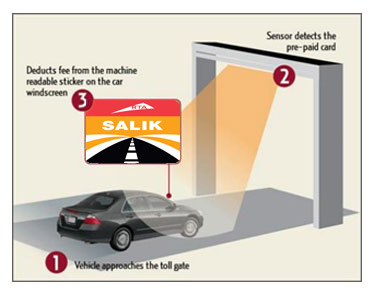 Salik, meaning open or clear, is Dubai’s road toll collection system. First launched in July 2007, Salik is a free flow tolling system that operates without toll booths, barriers or gates, allowing traffic to move freely through tolling points at highway speeds.
Salik, meaning open or clear, is Dubai’s road toll collection system. First launched in July 2007, Salik is a free flow tolling system that operates without toll booths, barriers or gates, allowing traffic to move freely through tolling points at highway speeds.
The heart of the system is the Salik tag which is attached to the vehicle windshield and utilizes the latest Radio Frequency Identification (RFID) technology to positively identify the vehicle as it passes through a Salik tolling point. Each time a vehicle passes a Salik tolling point, the toll charge is deducted from the customers prepaid Salik toll account.
TrafQuestwas contracted to provide expertise in the areas of traffic engineering and civil design on the Dubai Toll System (DTS) that was launched by the Dubai Roads and Transport Authority (RTA) in July of 2007. TrafQuest duties included:
